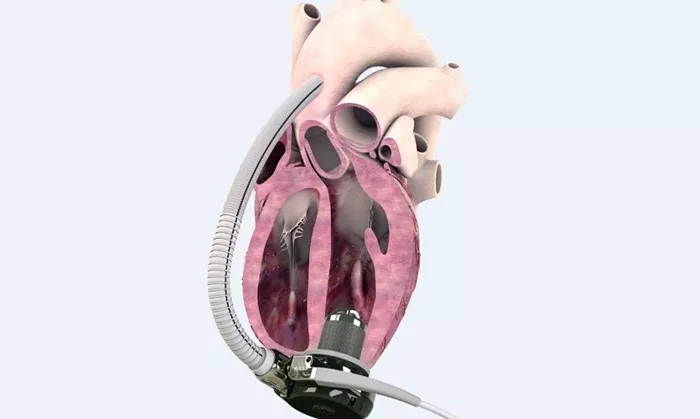A new study led by the University of Bristol has found that patients aged 50 to 70 who received a mechanical heart valve replacement had better long-term survival compared to those with a biological valve. The research, published in the European Journal of Cardio-Thoracic Surgery, sheds light on the ongoing debate about the most effective type of heart valve for middle-aged patients.
In the past 20 years, the use of biological valves, made from animal tissue, has increased. However, while short-term outcomes of both mechanical and biological valves are similar, their long-term effectiveness remains a topic of discussion.
Current medical guidelines recommend mechanical valves for patients under 50 years old, while biological valves are preferred for those over 65 or 70. For patients aged between 50 and 70, the decision is left to the surgeon and the patient.
To examine this issue, researchers reviewed data from the Bristol Heart Institute (BHI) covering a 27-year period, from 1996 to 2023. They analyzed trends, early outcomes, long-term survival rates, and the incidence of repeat surgeries or prosthesis mismatch in patients undergoing heart valve replacement.
The study included 1,708 patients, with an average age of 63, of which 69.7% received a biological valve replacement. While no significant differences were found in the short-term outcomes between the two groups, mechanical valve recipients had better survival rates over a period of up to 13 years after surgery.
Notably, patients with a size 19 mm biological valve—a size commonly used in women—had the worst long-term survival. On the other hand, those with a 21 mm mechanical valve had better survival rates compared to both the 19 mm and 21 mm biological valves. The study also highlighted that severe prosthesis-patient mismatch (PPM) was a key factor contributing to poor long-term survival.
Professor Gianni Angelini, Director of the Bristol Heart Institute and one of the lead authors of the study, said, “Our findings suggest that the current trend favoring biological valves for patients aged 50-70 should be reconsidered. The evidence points to better long-term survival with mechanical valves, especially in smaller sizes.”
Despite the advantage of mechanical valves in long-term survival, biological valves are often chosen because they don’t require long-term blood thinners. However, the study suggests that the benefits of mechanical valves, particularly in smaller sizes, should be more carefully considered.
There are some limitations to the study. It was conducted at a single institution, and the data were collected retrospectively, which could introduce bias. The study also lacked echocardiographic data, which could affect the accuracy of the findings, particularly regarding structural valve failure. Additionally, only patients who underwent specific re-interventions at BHI were included, so the results may not reflect all cases of repeat surgeries.
Nonetheless, the research provides important insights that could influence the decision-making process for heart valve replacements in patients aged 50-70.
Read more:
- Amid Trump’S Ban, NYC Doctor Stands Firm In Providing Transition Care For Trans Youth
- FDA Warns Of Botulism Threat As Canned Tuna Recalled From Major Retailers
- Male Breast Cancer: A Silent Threat To Men’S Health


